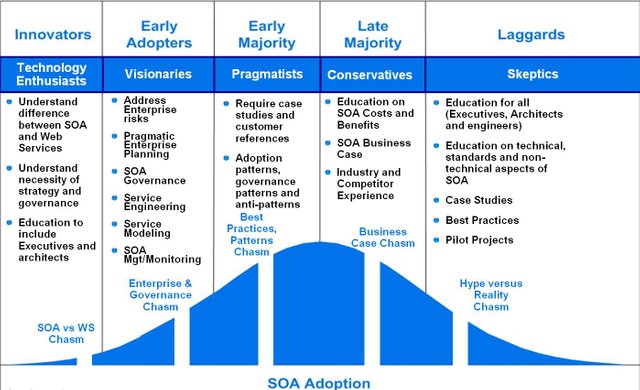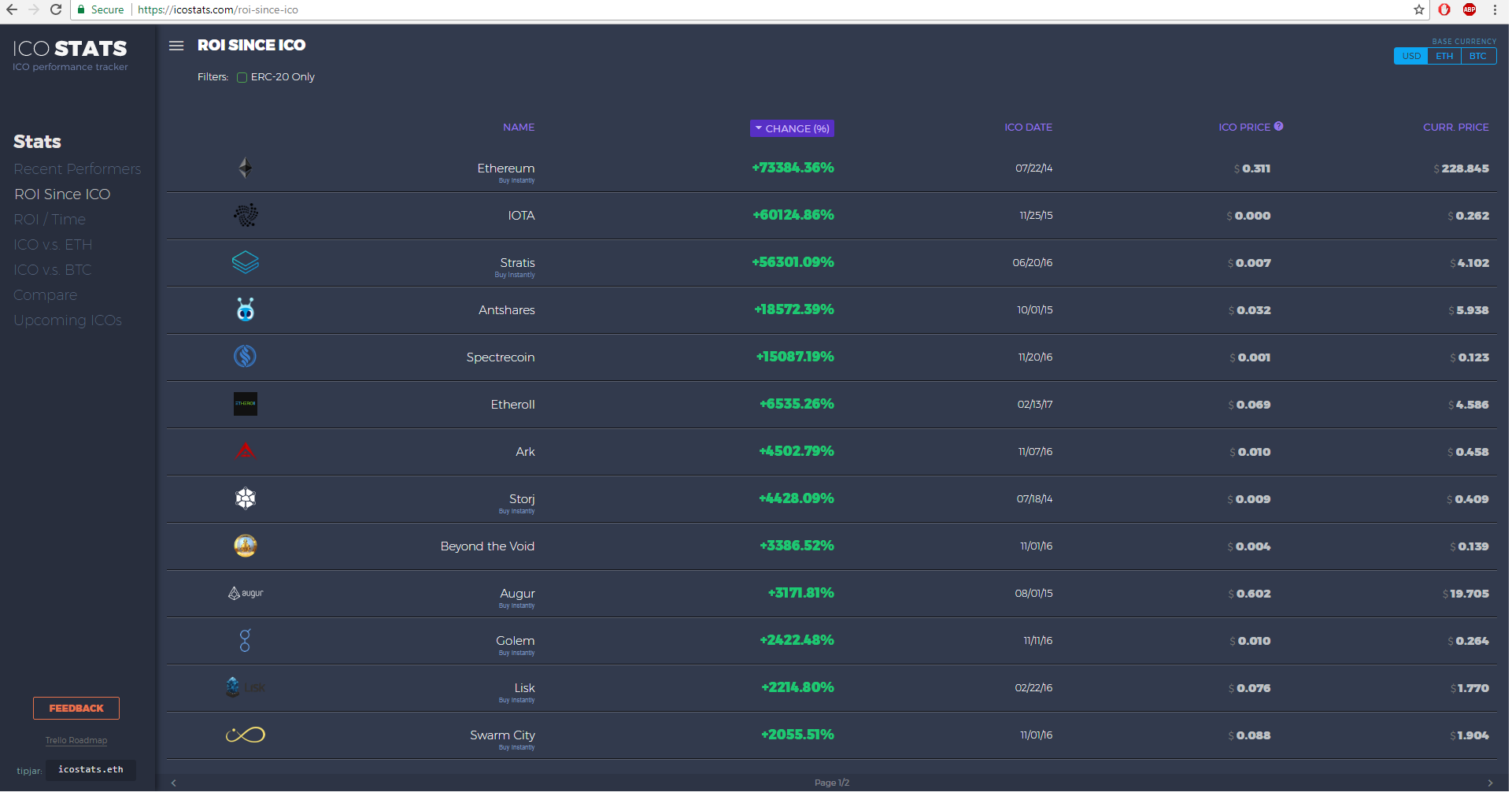The Cryptocurrency Bubble
With the first half of 2017 over, one asset class has outperformed every other asset class, cryptocurrency. The S&P 500 year to date is a mere 9.84%. Bitcoin even after it's recent correction is up 138.2%, over tenfold the S&P 500. Many altcoins like Ethereum, Ripple, and NEM are all up over 1000%, even after the recent price correction. With all that growth in such a short time frame, it is not surprising to see the word "crypto bubble" thrown around. Mark Cuban back on June 6th, tweeted "I think it's in a bubble. I just don't know when or how much it corrects. When everyone is bragging about how easy they are making $=bubble". This in turn brought bitcoin down a few percentage points that day, but didn't hold it back from reaching its peak of $3000 on June 11th. And though Mark called it a bubble, a few weeks later CNBC reported Mark was investing in the ICO Unikrn, along with Ashton Kutchner.
I'm going to tell you why this bubble is still far from bursting. For one we are still very much in the early adopters stage of cryptocurrency (check the image below for more detail on the adoption curve), though it is growing at a rapid pace. If you went out on the street and asked 10 people if they knew what bitcoin was, there's a good chance that half of them would say they've heard about it. You mention, Ethereum, Ripple, NEM, Stratis, SIAcoin, Steem, etc. (you get the point) there's very slim chance they would recognize those names. We are now seeing more "smart" money pour into the cryptocurrency field, as we've seen institutional investors starting to make their way into cryptocurrency. Now along with institutional investors we've seen the second (Ethereum) and third (Ripple) largest market cap cryptocurrencies form alliances with large corporations and banks. The Enterprise Ethereum Alliance purpose is to connect fortune 500 companies, startups, academics and technology vendors with Ethereum experts. Members include British Petroleum (BP), Cisco, Intel, J.P. Morgan, Microsoft, and many more renowned companies. Ripple has signed with over 75 banks (more now, but I couldn't find the exact number) including Royal Bank of Canada (RBC), BBVA in Spain and Mexico, SEB in Sweeden, Bank of America Merryl Lynch, UBS, and many more. Though we won't see banks change from SWIFT system currently used for banking transactions overnight.

Initial Coin Offerings (ICOs) have been the fuel to this bull run of 2017. While a majority of ICO's except Ethereum only, some do bitcoin, and other altcoins. The ICO's have been one of many reasons Ethereum peaked at $400 back in June. Forbes ran an article on July 12th stating "Crypto Boom: 15 New Hedge Funds Want In On 84,000% Returns." Per the article, from May 1st to July 12th, 43 projects raised over $1.2 billion via ICO's. These type of returns have brought many new investors into the cryptocurrency market. With the market cap going from roughly $30 billion in January 2017 to $117 billion in June 2017, we've seen many new people throwing their money into cryptocurrency without any real due diligence before investing. This is very similar to the Dot.com bubble that happened in the 1990's. Now many of these cryptocurrencies label clearly in their white papers and on their websites that their coins are a token and not a security to sidestep any laws the Securities and Exchange Commission (SEC) has already in place.

Above is the Return On Investment (ROI) for ICO's.
There is a lot in common between both Dot.com bubble and cryptocurrency bubble. The ICO craze that is going on at this very moment is very similar to the many of the dot.com companies racing from start up to initial public offering (IPO). Investors during the mid to late 1990's would throw their money at any company with a dot.com after the name. Many of these companies were operating at a net loss and didn't have much of a business model, but that didn't matter because of massive speculation on the future of what the internet would bring. We see this now with the massive speculation occuring in cryptocurrency, many products don't even have a working demo, yet are able to raise millions of dollars off simply a whitepaper and a website with a few notable advisers. Many people are seeing block-chain as the next disruption, like the internet was in 1990's. With all this similarity, one would be worried by recent headlines about stating "cryptocurrency bubble." Though there is one key difference here, at the peak of the dot.com bubble it was at $1.7 trillion, whereas cryptomarket just peaked at $117 billion. Cryptocurrency is still very much a small market cap, compared to the amount of money globally across markets. New York Stock Exchange (NYSE) market cap is about $21 trillion, making you realize that cryptocurrency is still a very small market.
One thing people fail to realize is that cryptocurrency is a new asset class as noted Forbes and CNBC. Per CNBC, "Investors should not be put off by the price volatility for cryptocurrencies like bitcoin and ethereum because these digital assets are still very new and offer nearly unparalleled returns." This is true for such a new asset class with little regulation and no borders. Anyone with internet connection and some sort of account connected can buy bitcoin, and some areas even have ATM's where you can buy bitcoin and other altcoins. There are 1,362 bitcoin ATM's worldwide according to Coin ATM Radar. Of 1,362 ATM's, over 1,100 are in North America.
In the next five years it wouldn't shock me to see the cryptobubble burst, but at the moment we haven't hit a mania phase and exchanging crypto to fiat and vice versa is still challenging to not so tech savvy people. If you believe in block-chains ability, then you would want this bubble to burst similar to what the dot.com bubble did. The Amazons, Googles, ebays, etc. will survive because of good management, a solid business plan, and focus on their objectives. The Pets.coms and Webvans will fail due to poor management and guidance. With 811 cryptocurrencies (as of the time of writing this) up and running, there are many that are copy and pastes of bitcoin or simply made because it is a gold rush. And since there is no regulation so anyone can go make a coin, whitepaper, and a website and launch their ICO and immediately cash out their ethereum after the ICO. So before you invest in any cryptocurrency or ICO, do your due diligence. Check their website out, see who the management and advisors are. Read the reddits, blogs, and slack channels to see how the community is. Finally search them on google and see if they are making any headlines and what is being said about them. There are also websites like ICO Rating that write reports on the risk factor and how trustworthy a project is.
If you liked this post, please share it!
Thank you!
Disclaimer: this author currently owns stakes in Siacoin and Ripple.
Congratulations @investoranalysis! You have completed some achievement on Steemit and have been rewarded with new badge(s) :
Click on any badge to view your own Board of Honor on SteemitBoard.
For more information about SteemitBoard, click here
If you no longer want to receive notifications, reply to this comment with the word
STOP